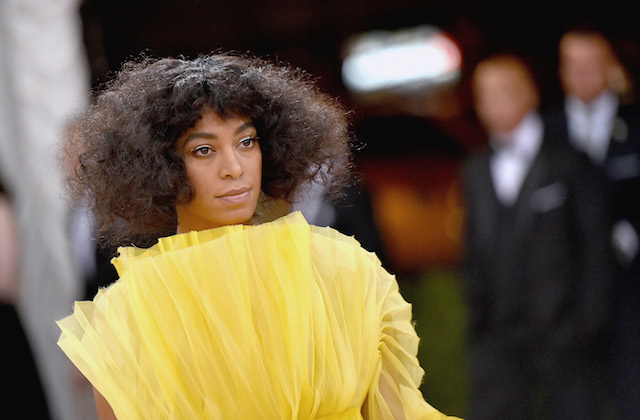Solange‘s expansive "A Seat at the Table" dedicates several songs to exploring the erasure of Black people from cultural spaces they created. As the artist explained in an appearance on WQXR’s "Helga" podcast yesterday (December 5), the album was in part inspired by a 2013 incident in which The New York Times’ Jon Caramanica admonished Solange for her comments about White music writers critiquing R&B:
The turning point happened when, essentially, I was on Twitter professing my love for the artist Brandy, who I’m a massive fan of. And there were a lot of White indie music critics who criticized, actually, me professing this undying love for Brandy. … I essentially challenged writers that if they were writing about R&B music, that they needed to know who Brandy was. And that was not warmly received from everyone. …
The New York Times was doing a podcast and they invited me to be a part of it and it was on cultural tourism. … And I declined. I didn’t really see any incentive for me to be involved in that conversation and in that way. I didn’t feel the need to have a debate about something that I was culturally a part of, and I didn’t feel the need to defend that. So they brought up my comments on this podcast, and the writer, who was a White male actually said, "I went to Solange’s concert and I noted who her audience was, and if I were her, I’d be careful of making these statements because I’d be careful not to bite the hand that feeds me."
Caramanica’s full comments appear here. He references her supposed popularity boost with White audiences following her 2012 album "True" on Terrible Records, a label run by White indie rock musician Chris Taylor. Solange told podcast host Helga Davis that the exchange compelled her to create "A Seat at the Table":
That was kind of the turning point in the transition for me writing the album that is now "A Seat at the Table." I began to think a lot about that conversation and replaying it, and it haunted me. And it haunted my mother to hear someone telling her daughter "don’t bite the hand that feeds you." And also the racial subtleties—[that] are not so subtle—of what that encompasses when you say that to a Black woman. Then you connect it by saying ‘Do you know who’s buying your records?’ So I was essentially being told to shut up.
Solange connected this exchange and others to what several Black artists who write about Black identity and racism have encountered when speaking about those issues outside of their music. "People are generally comfortable with you telling those stories through your art, and we see this even with Black visual artists, but really uncomfortable with you talking about it outside of that context," she said. "And that’s when the conversation starts to get a little muddy."
The artist’s hour-and-fifteen-minute-long exchange with Davis, in which she also addresses her upbringing and previous work, is available in full below.
